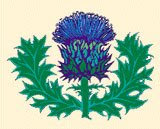Originally published in Harper's New Monthly Magazine, March 1885, pages 601-612.
Author: Frederick Daniel
Fredericksburg, now of historic fame from the battle fought in its midst December 13, 1862, was named by solemn act of Council, in 1727, after Frederick, son of George I. English royal names and personages were held in high repute in the colony of Virginia, and it is scarcely surprising that so many counties and streets in the present State bear the names and titles of the three Georges and other princes, one of said counties passing under the compound appellation of "King and Queen."
We are told - be this myth or not - that Captain John Smith, the ubiquitous hero of the Pocahontas legend, ascended the Rappahannock River in a small boat as far as the falls, opposite the site upon which to-day stands the town of Fredericksburg, discovering there merely a wigwam village of the Indian tribe known as the "Rappahannocs." About a century later the site was surveyed and settled by a few hardy adventurers who were not afraid to have for neighbors the Rappahannocs, "most formidable savages," according to Smith. The new town decreed by law in 1727 was, following the usual incipiency of colonial towns, a straggling collection of houses built entirely of wood, even to the chimneys, a custom which was afterward condemned by law as threatening the life of the settlement. From the date of that prohibition sprung brick chimneys, and the easy, modest existence continued through a century and a half, down to our own day.
Rich in landmarks and traditions connected with the colonial and Revolutionary era of Virginia, Fredericksburg was a distinguished contributor to the founding of the republic. It proudly lays claim to the honor of having been the scene of Washington's early life, the home of his mother until her death, and finally the place of her burial. To the charm and prestige arising from its early history may be largely attributed to the moderate amount of prosperity which kept the town alive in spite of manifold disadvantages. Its more brilliant phase ended with the stirring times of Washington's career; during this century its name has occasionally sounded at the front, though for the most part its life has been passed in retirement. Dickens, in his American Notes, dubbed it a "finished town," but it is notorious that the novelist was in the habit of writing from a Pickwickian stand-point. At no time "finished," the old town is today very much improved, and looks forward to a bright future, especially in manufactures, despite its abandonment by many of the young men, who went South and West "to grow up," in consequence of the immediate losses inflicted by war.
The stand which the little town took at an early date in behalf of independence is the chief glory of its citizens to-day. Its leading men were the very first in Virginia to adopt the principle that the colonies ought not only to be exempt from mother-country taxation, but ought to be free and independent states. At a time when many of the ablest Virginia statesmen, such as Richard Bland, Robert Carter Nicholas, Edmond Pendleton, George Mason, Thomas Ludwell Lee, Carter Braxton, and Benjamin Harrison, were shrinking back from the thought of attempting to achieve independence, the sturdy burghers were far in advance in accurately forecasting the future. The evidence on this point is conclusive. When, in April, 1775, one day after the battle of Lexington, the news of Lord Dunmore's removal of twenty barrels of gunpowder from the public magazine in Williamsburg reached Fredericksburg, measures were speedily devised for collecting and arming the people, and six hundred men, well armed and disciplined, assembled at once. Delegates were dispatched to ascertain precisely the condition of affairs at Williamsburg, and a public meeting, held on April 29, 1775, adopted a series of resolutions which were in form and substance tantamount to a declaration of American independence. Though deprecating civil war, yet, considering the liberties of America to be in danger, the delegates to the meeting pledged themselves to re-assemble at a moment's warning, and by force of arms to defend the rights of "this or any sister colony," and concluded with the sentence, "God save the liberties of America!" These resolutions were passed twenty-one days before the celebrated Mecklenburg declaration in North Carolina, and one year and sixty-five days before the Declaration of Independence of the American Congress.
(to be continued)
Subscribe to:
Post Comments (Atom)

No comments:
Post a Comment